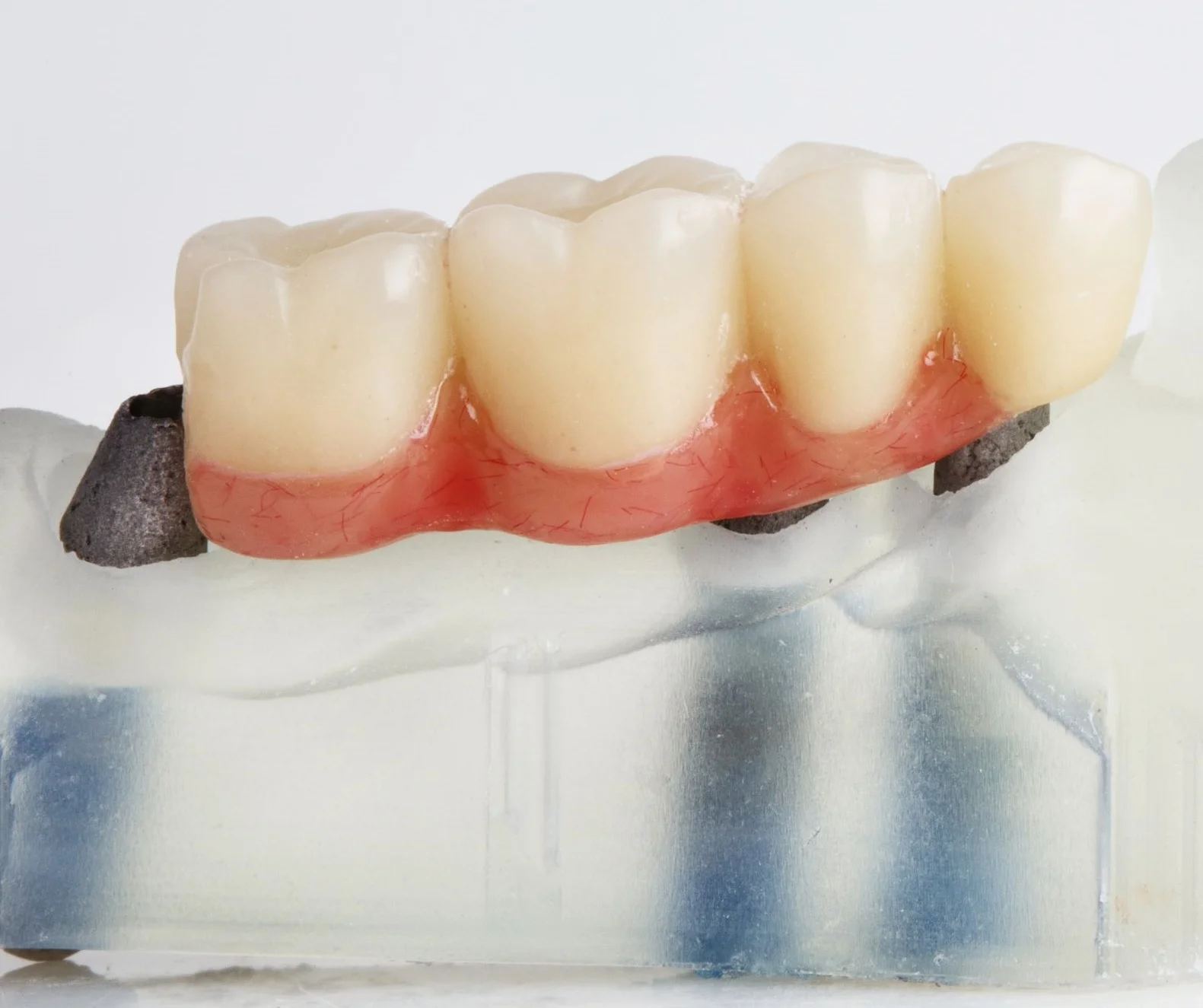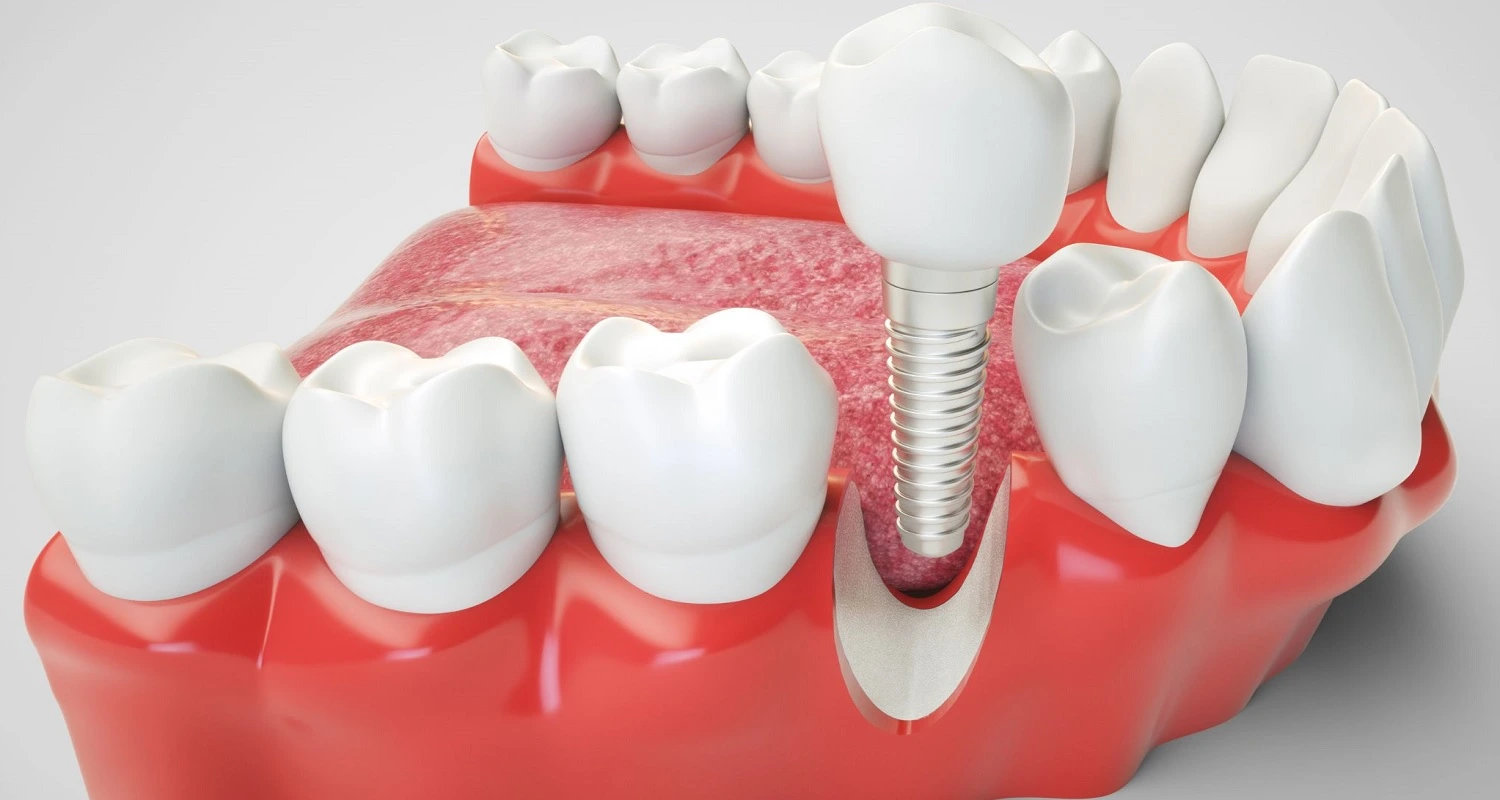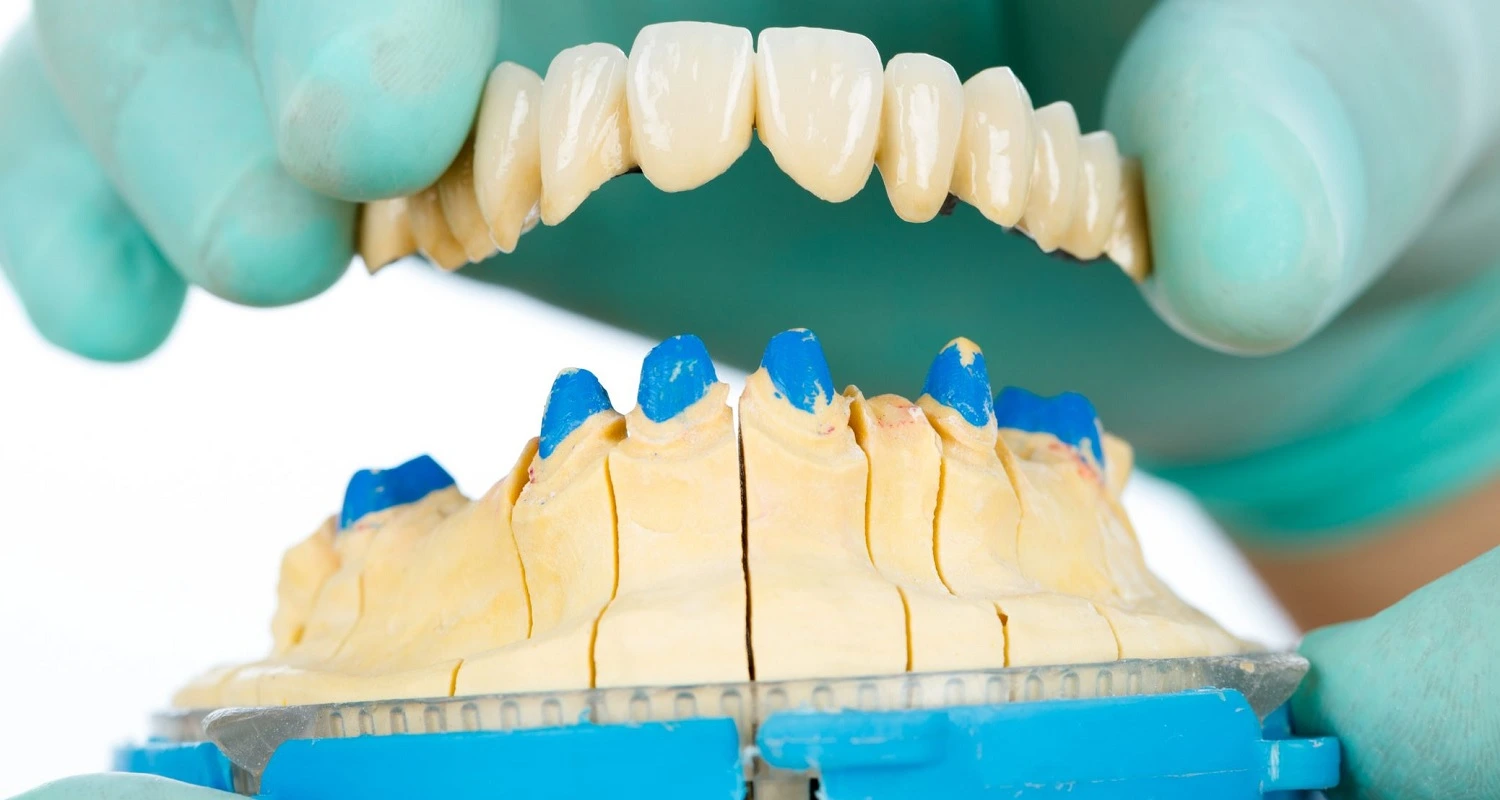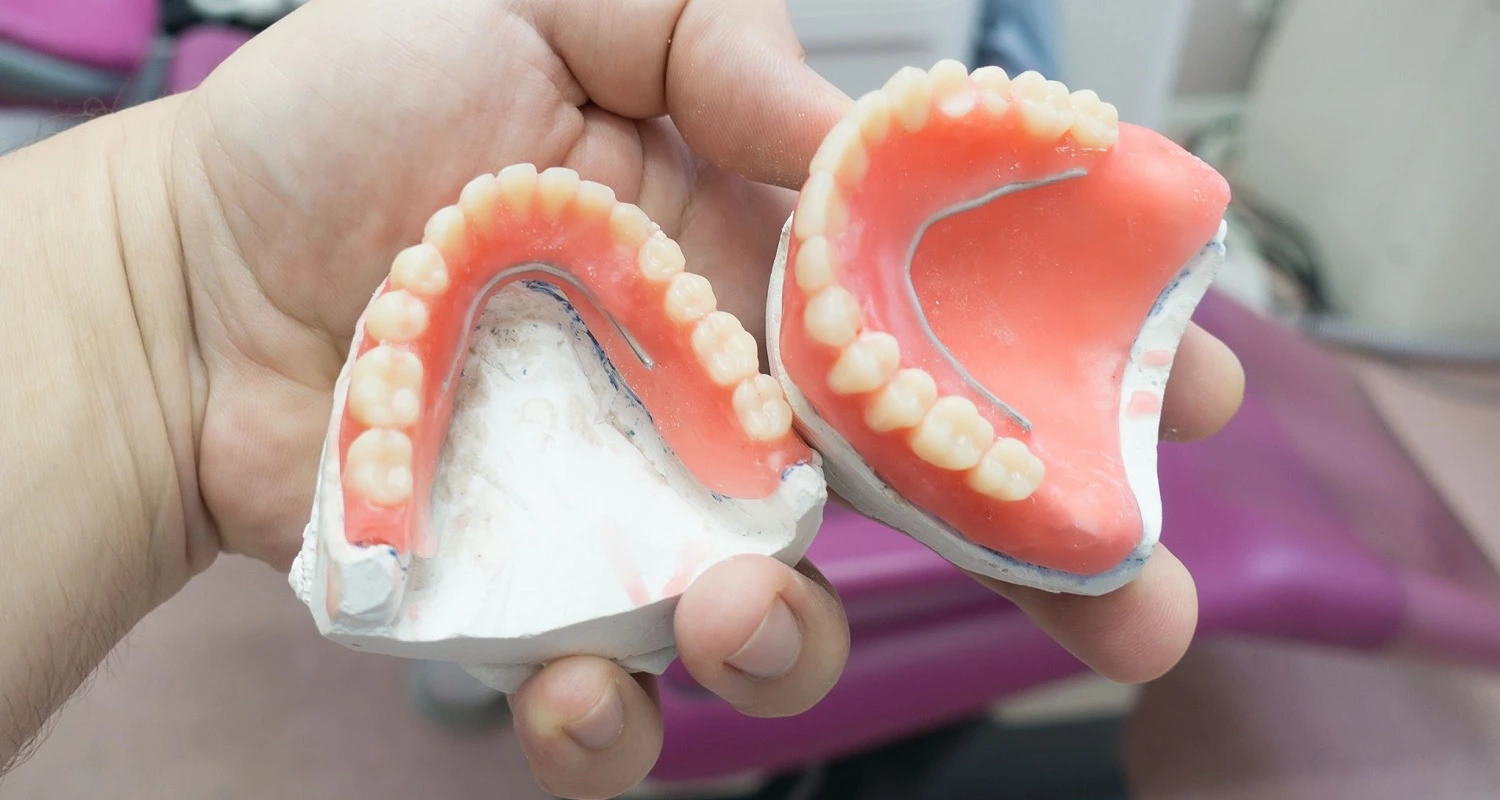Last Updated on: 12th December 2025, 05:34 am
Dental Implant Alternatives: Discover the Options to Recover Your Smile
Did you know that 26% of adults aged 65 or older have 8 or fewer teeth? This condition, known as edentulism, makes nutrition difficult and seriously affects aesthetics, significantly impairing quality of life. That’s why, for thousands of years, people have looked for ways to replace missing teeth.
How many teeth do adults have? Check this article to learn more.
This has generated multiple alternatives that adjust to all the conditions, preferences, and budgets of patients seeking to restore their smiles. Implant placement is one of the most popular options for replacing these missing teeth, but it is not the only one. In this article, we thoroughly review the dental implant alternatives, their indications, advantages, and disadvantages.
What is a Dental Implant?
A dental implant is a medical device used in dentistry to replace missing or missing teeth. It consists of a small titanium structure inserted into the jaw or upper jaw, which is then used as a base to place a crown or dental prosthesis. Over time, the implant fuses with the surrounding bone, creating a stable structure that is solidly anchored to the jaw.
Advantages and Disadvantages of Dental Implants
Advantages of dental implants:
1. Functionality: Implants offer a chewing function similar to that of natural teeth, allowing you to eat and speak normally.
2. Naturalness: Dental implants resemble natural teeth, which significantly improves dental aesthetics.
3. Durability: Dental implants have a long-term lifespan and, if cared for properly, they can last much longer than a conventional denture.
4. Comfort: Unlike removable dentures, dental implants are fixed and do not slide during speaking or chewing.
5. They do not require wear of adjacent teeth: There is no need to wear down adjacent teeth, as is the case with dental bridges, which preserves the integrity of the surrounding teeth.
6. Improves self-esteem and security: By restoring one’s smile and dental function, implants can increase confidence and self-esteem, while improving the patient’s confidence when speaking and smiling.
Disadvantages of dental implants:
1. They are expensive: The price of a dental implant ranges between $3,000 and $4,500 per tooth. The cost could increase if additional surgeries are required for adaptation.
2. The results are not immediate: The process of placing a dental implant can take several months, since before placing the prosthetic tooth, you must wait for the implant to integrate with the bone and become well tolerated.
3. Involves a surgical procedure: The placement of implants is performed through a small surgery, which can cause some discomfort and require recovery time.
4. They require a good state of health: Not all patients are ideal candidates for implants; bone density, healing capacity, consumption of certain medications, and oral health may be limitations for their placement.
5. Increased risk of complications: Although rare, complications, such as an infection or rejection, can occur with dental implants; in fact, they are more frequent than other options, such as removable dentures.
6. They need strict oral hygiene: They require rigorous oral hygiene and continuous care to maintain their longevity.
7. Difficult extraction: If the implant is rejected by the body or requires replacement, removing it is difficult and can leave a defect in the bone.
Why Look for Alternatives to Dental Implants?
Dental implants are a popular option for those who want a long-term solution to replacing missing teeth, as they offer a natural appearance and similar functionality to natural teeth. However, not all patients are candidates for dental implants, due to different factors:
● Bone density
● Height of the remaining bone
● Basic diseases
● Shoestring budget
Therefore, it is important to consult a dentist or oral surgeon to determine if dental implants are right for you. If an implant is not the best option in your case, there are other ways to replace missing teeth.
Types of Dental Implant Alternatives
Below we address various alternatives for replacing lost teeth:
1. Dental bridge or fixed prosthesis
This is a false tooth attached to crowns that are placed on adjacent teeth. It is a viable option when there are teeth on each side of the space to be rehabilitated. The replaced teeth are called pontics, and the teeth that support them are called abutments. Understanding the various types of dental bridges will make your decision easier. Simply read our article for a comprehensive guide.
Pros:
● It is the closest option to a dental implant since it does not require removal.
● It does not require surgical intervention.
● It can have several pontics, but the number of abutment teeth must also increase to ensure proper functioning.
● They are usually less expensive than a dental implant.
● It can be used to replace one or more teeth.
● It may be beneficial if the adjacent teeth have structural damage and require dental crowns.
Cons:
● It entails wear of abutment teeth, which in many cases could be healthy.
● They last between 5 and 10 years.
● They can lose their natural appearance over time.
● If thorough hygiene is not carried out, it could cause gingival inflammation.
● It is not a viable option if the abutment teeth have gum (periodontal) disease.
● They are more expensive than a denture or removable prosthesis.
2. Dentures: A viable alternative to implants
A. Partial or full denture
Also called removable partial or total prostheses, these acrylic structures carry prosthetic teeth and adapt to the shape of the jaws. Partial dentures may be attached to a metal framework that fits the remaining teeth and provides stability.
Pros:
● They are cheaper than a fixed prosthesis or an implant; they cost between 1000 and 4000 for each jaw.
● Removable partial dentures replace missing teeth without massively wearing down other teeth.
● They can be used by patients with underlying diseases that affect the immune system or healing.
Cons:
● They can be uncomfortable, especially while the patient becomes accustomed to their presence.
● Masticatory efficiency is lower than with a fixed prosthesis.
● They are often less stable than fixed dentures; and depending on the support structures available, they may slide or loosen while speaking or chewing.
● If the prosthesis covers the palate, it can affect the perception of the taste of food.
● Over time, removable dentures may require adjustments.
● Long-term use can accelerate bone loss in the jaws.
● Some people may feel embarrassed about wearing a removable denture.
● They have aesthetic limitations.
B. Flipper or single tooth prosthesis
These are removable prostheses that adapt with hooks to the teeth close to the space of the missing tooth; they are located only in that area. These prostheses do not involve the palate or the floor of the mouth area.
Pros:
● They do not require wear of nearby teeth.
● They are a very cheap alternative to dental implants.
● The placement process is brief, requiring between 2 and 3 appointments.
Cons:
● They can cause damage to the gums of the adjacent teeth.
● Due to their size, there is a risk of it being ingested by the patient.
Conclusion
● Dental implants offer numerous advantages, including a natural appearance, functionality, and long-term durability. However, the cost and lengthy process can be challenges for some patients.
● The use of implants is contraindicated in some cases, and there are certain conditions that must be taken into account when replacing missing teeth.
● Dental implants alternatives, such as fixed bridges and dentures, offer viable solutions for replacing missing teeth, but they also have their own advantages and disadvantages, which must be carefully considered based on the needs of each patient.
Frequently Asked Questions
Is it possible to repair teeth without resorting to implants?
There are alternatives such as bridges and complete or partial dentures for those looking for solutions other than implants to missing teeth. Each restoration method has certain drawbacks. To replace a missing tooth without using implants, a fixed dental bridge supported by adjacent teeth is one of the most common options.
What are the alternatives to titanium dental implants?
Zirconium implants are often promoted as an alternative to titanium implants. Zirconium is a white ceramic material. Patients are often surprised to discover that ceramics include both metals and nonmetals.
Should I keep my tooth or get an implant?
The main argument against replacing teeth with dental implants is that it is generally better for patients to keep their natural teeth. There is a small chance that the dental implant will not integrate properly into the jaw, although implants are known to have a success rate of over 95 percent.
What are mini implants?
Mini dental implants share the basic structure of traditional implants; however, they are characterized by their smaller size. They differ from standard implants as they are a one-piece screw with a diameter of less than 3 mm with a ball-shaped end that protrudes from the maxillary bone tissue.
Share:
References
1. Tooth loss. (2022). Cdc.gov. https://www.cdc.gov/oralhealth/fast-facts/tooth-loss/index.html
2. Barillas, M. (May 1, 2020).How much does a dental implant cost in the United States?. PreciosUSA https://preciosusa.com/cuanto-cuesta-un-implante-dental-en-estados-unidos/
3. Implants. (s/f). Mouthhealthy.org. https://www.mouthhealthy.org/all-topics-a-z/implants
4. Roland, J. (31 ago, 2021). 5 types of dental prosthesis devices. Healthline. https://www.healthline.com/health/dental-prosthesis
5. ANDetman, D. (Dec 1, 2022).Benefits of dental implants, drawbacks, and candidates. Healthline. https://www.healthline.com/health/dental-and-oral-health/benefits-of-dental-implants
6. Yetman, D. (Jan 22, 2021).What’s Better: A Dental Implant or a Bridge? Healthline.https://www.healthline.com/health/implant-vs-bridge
-
Nayibe Cubillos M. [Author]
Pharmaceutical Chemestry |Pharmaceutical Process Management | Pharmaceutical Care | Pharmaceutical Services Audit | Pharmaceutical Services Process Consulting | Content Project Manager | SEO Knowledge | Content Writer | Leadership | Scrum Master
View all posts
A healthcare writer with a solid background in pharmaceutical chemistry and a thorough understanding of Colombian regulatory processes and comprehensive sector management, she has significant experience coordinating and leading multidisciplina...


















